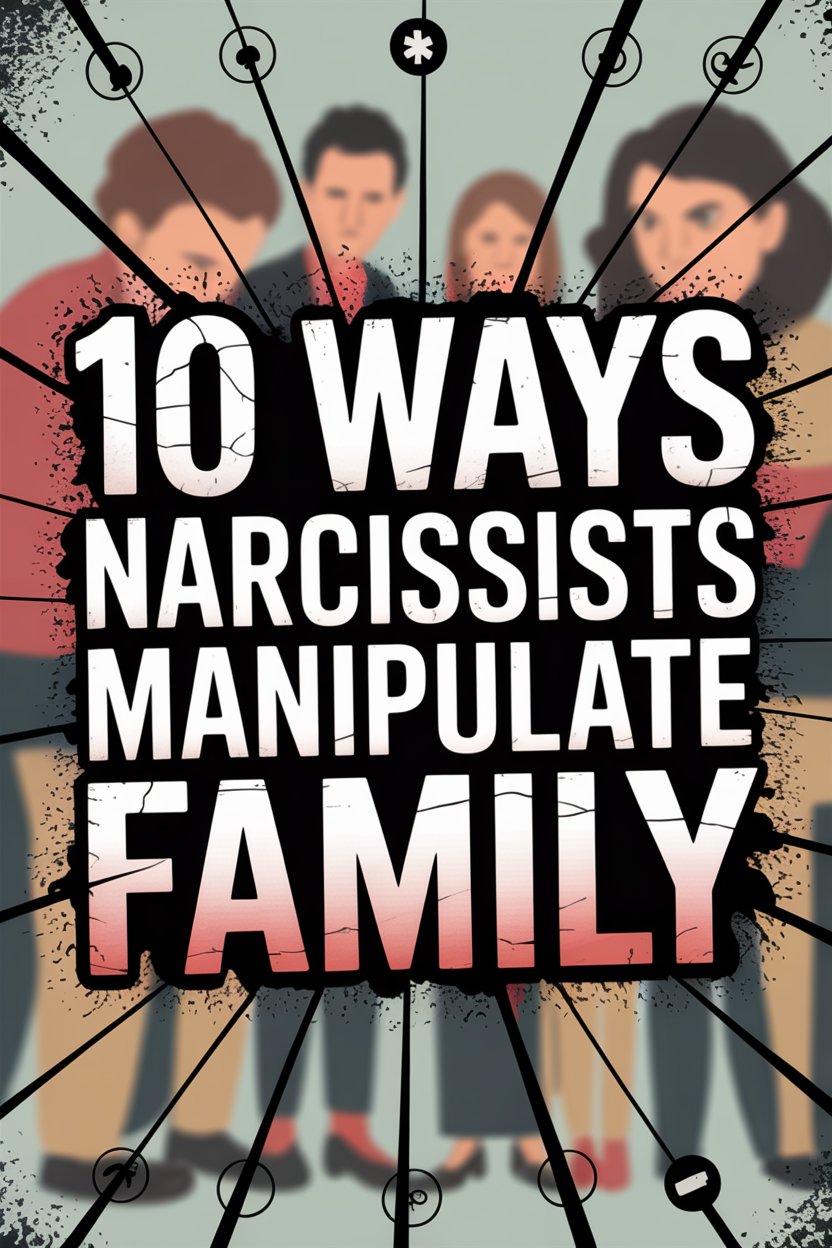Narcissists: not just a party trick with a mirror and their own reflection.
Families who deal with one rarely need reminding—life with a narcissist is like starring in a drama where the script keeps changing, and somehow, you’re always the villain.
If you’ve ever walked away from a conversation with a family member feeling like you just lost a chess game you didn’t know you were playing, you might be facing some classic narcissistic moves.
This isn’t just about eye-rolling at your aunt’s epic humblebrags. We’re talking about emotional manipulation so sneaky, it can leave grown adults questioning reality (and their sanity).
Ready for the curtain to lift? Here’s what’s really happening behind closed doors.
1. Gaslighting Until the Lights Flicker
Ever find yourself apologizing for something you’re not sure even happened? Welcome to gaslighting, the narcissist’s favorite pastime.
This isn’t just regular old lying—this is an all-out assault on your memory, perceptions, and basic grip on what’s real.
They’ll insist you said something you never did. Or deny that event you have photographic proof of. Over time, second-guessing yourself becomes the new family tradition.
Suddenly, confidence is reserved for people who don’t share your last name.
2. Playing Family Members Against Each Other
Narcissists love a good soap opera, and the family group chat is their stage. They’re masters at pitting siblings, cousins, or even spouses against one another.
Maybe they’ll confide in one child about what a disappointment the other is. Or “accidentally” let slip something that a family member said in confidence.
The result? A house divided, with the narcissist comfortably in the director’s chair, munching popcorn while everyone else bickers. If Thanksgiving dinner feels more like a reality TV reunion, now you know why.
3. Withholding Love and Approval
Forget dangling carrots—narcissists hang emotional validation just out of reach, then yank it away the second you think you’ve earned it.
That hug? Only if you say the right thing. That compliment? Maybe next year.
Kids grow up desperate for approval, adults turn themselves inside out for a crumb of affection, and the narcissist gets to feel all-powerful. It’s the emotional equivalent of chasing your own tail, minus the cute puppy factor.
4. Blame-Shifting Like It’s an Olympic Sport
If there were medals for dodging responsibility, narcissists would sweep the podium every year. Any slip-up, big or small, is never their fault.
Didn’t finish the project? You distracted them. Car broke down? Clearly, you jinxed it.
Family members get used to being the designated scapegoat. And just when you think you’ve spotted the pattern, they’ll switch things up to keep you guessing. (Bonus points if you apologize for their mistakes.)
5. Using Guilt as a Get-Out-of-Jail-Free Card
Narcissists aren’t above weaponizing guilt, especially when it comes to family. Expect teary-eyed “after all I’ve done for you” monologues, dramatic sighing, and the kind of martyr complex that could win awards.
Did you prioritize your own needs? Selfish. Want to see friends on a holiday? Betrayal. Planning to move out? Why, you might as well have burned the family home to the ground.
The guilt trip never ends, and there are no scenic stops along the way.
6. Love-Bombing and Sudden Cold Shoulders
One day you’re the golden child, showered with attention and praise. The next, you’re on the outside looking in, wondering what you did wrong.
Welcome to the whiplash world of love-bombing and silent treatment.
Narcissists operate on extremes. They’ll overwhelm you with affection (gifts, compliments, grand gestures), but it’s all conditional. Step out of line, and the warmth vanishes faster than your motivation on a Monday morning.
The unpredictability keeps you hooked, always hoping for the next wave of approval.
7. Twisting the Truth Until It’s Unrecognizable
While most families have at least one creative storyteller, narcissists take it up a notch. They’ll invent, exaggerate, or conveniently edit details to suit their agenda.
Arguments morph into elaborate tales where they’re always the misunderstood hero.
This isn’t about poor memory. It’s about rewriting family history to keep themselves in the limelight. If everyone else starts doubting their own recollections, that’s just a bonus.
You could swear you remember how it happened—too bad, the narcissist’s version is the new canon.
8. Playing the Victim Like a Pro
Narcissists never met a situation they couldn’t spin to make themselves look hard done by. They’ll recount minor slights as tragic betrayals, and any attempt to call them out is framed as a personal attack.
If you’ve ever tried holding a narcissist accountable, prepare for waterworks, outrage, or the world’s worst guilt trip. The aim? Keep the focus on their feelings, not the actual issue.
And if they can recruit a few flying monkeys (read: sympathetic relatives) to their side, even better.
9. Boundary-Busting at Every Turn
Boundaries are suggestions, not rules, in the narcissist’s mind. Privacy, alone time, and personal space are dismissed as signs of disloyalty.
They’ll read your messages, comment on your relationships, and make decisions for you—because, obviously, they know best.
Attempts to set healthy boundaries are met with ridicule or outright defiance. If you’re lucky, you’ll just get a sarcastic eye-roll. More often, expect drama, accusations, or the silent treatment (again).
10. Conditional Generosity
Generosity with strings attached isn’t generosity—it’s a transaction. Narcissists love to appear magnanimous, but every favor comes with an unspoken debt.
Accept their help, and suddenly, you owe them. Refuse, and you’re ungrateful.
Maybe they’ll buy you gifts, offer financial support, or step in when things get tough. But it’s not about kindness—it’s about ensuring future loyalty, guilt, and leverage.
Say no often enough, and watch that “generosity” dry up faster than last year’s houseplant.
Taking Back the Script
Living with a narcissist in the family isn’t for the faint-hearted. It’s a masterclass in manipulation, with plot twists you never saw coming.
Recognizing these tactics is the first step to rewriting your own role—and, if needed, rewriting your boundaries.
Start small: Keep records when reality is questioned. Limit what you share if you know information will be weaponized.
Practice saying no, even if it earns you dramatic sighs worthy of a soap opera star.
Support systems—friends, a therapist, that cousin who’s always “busy” during family gatherings—will be your lifeline. Healing from narcissistic manipulation takes time, but you get to decide what part you play from here on out.
If nothing else, you’ll have some spectacular stories for your next dinner party. Just don’t let the narcissist tell them—you’ll barely recognize the plot.


